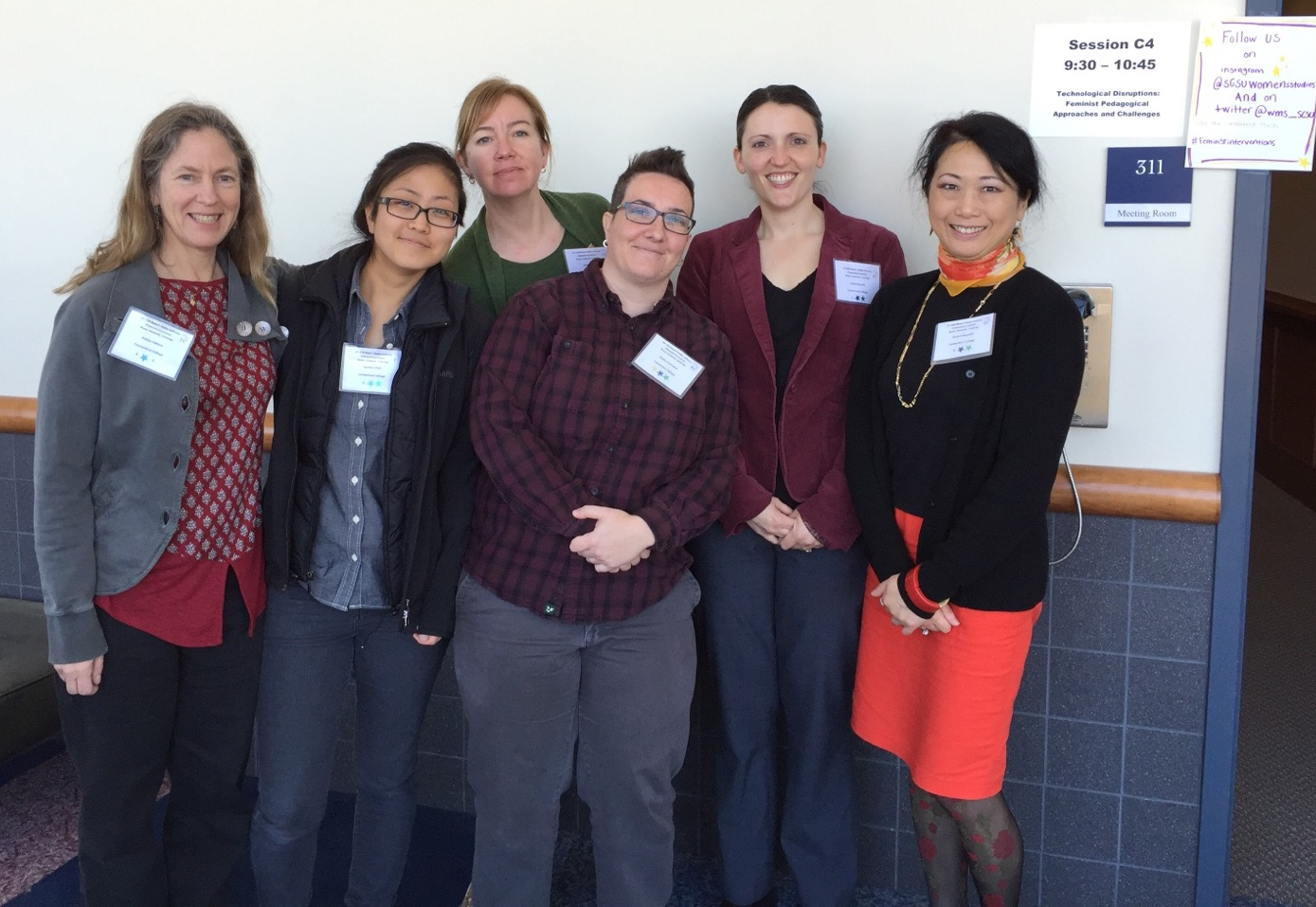
Last Friday and Saturday Southern Connecticut State University held its 22nd Women’s Studies Conference, and a delegation from Connecticut College was there to represent! The conference theme – #FeministIn(ter)ventions: Women, Community, Technology – provided a perfect opportunity to share some of the technology-rich courses and projects that have been undertaken at the College, and to hear from colleagues about the successes and challenges of such ventures. At our roundtable workshop/discussion, we described the practices we collectively endorse and the activities we’ve been a part of, highlighting the collaborative spirit that developed among this mixed group of faculty, librarians, and instructional technologists as we prepared for the conference itself. Some of the projects we talked about have been the subject of Engage blog posts, including Hisae Kobayashi’s Twitter project, Ariella Rotramel’s Wikipedia project, and the various tele- and web conferencing activities we support, including Joyce Benett’s organization of a personalized Yucatec Maya course for a student. Caroline Park spoke about feminist music technology, bringing up gendered and racialized technical jargon in the context of creative art and sound projects, and the ongoing process of critically navigating that dynamic in the classroom and outside of it. Guided by Ashley Hanson, participants and presenters alike had a chance to role up their sleeves to do some mind mapping, which provided rich material for our discussion, and exciting ideas for the future. Feel free to check out our slides if you have time.
Endorsing as we do collaborative projects and approaches, we were somewhat disheartened to learn from one of our workshop participants that they are not so easily implemented in the K-12 environment as they are in higher education. Library Media Specialist Jill Woychowski enlightened us about filtering practices in federally funded schools that limit not just access to potentially harmful web sites, but also to ones that enable collaborative projects or contain content related to many common Gender and Women’s Studies topics. This conversation led us to wonder, as a group, about the impact on students as they transition to college and their development of critical metaliteracy skills. What do you think? Should students be sheltered from the “real world” of the Internet? How does a lack of access to collaborative platforms and to the contested territories of the public sphere affect our students’ ability to do research and to co-construct knowledge at the college level?

Thank you, everyone. It was fun!!